Hyundai i-30: Why didn't my air bag go off in a collision? / Air bag collision sensors
WARNING
To reduce the risk of an air bag deploying unexpectedly and causing serious injury or death:
- Do not hit or allow any objects to impact the locations where air bags or sensors are installed.
- Do not perform maintenance on or around the air bag sensors. If the location or angle of the sensors is altered, the air bags may deploy when they should not or may not deploy when they should.
- Do not install bumper guards or replace the bumper with a nongenuine part.This may adversely affect the collision and air bag deployment performance.
- Place the ignition switch to the LOCK/OFF or ACC position, when the vehicle is being towed to prevent inadvertent air bag deployment.
- We recommend that all air bag repairs are conducted by a HYUNDAI authorised repairer.
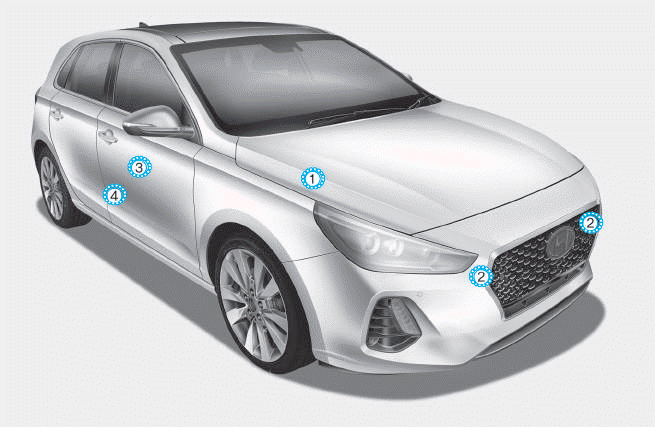
1. SRS control module
2. Front impact sensor
3. Side pressure sensor (front)*
4. Side impact sensor (rear)
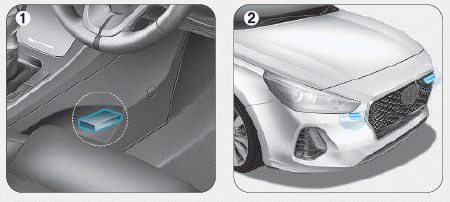
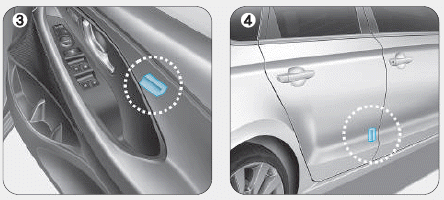
 Why didn't my air bag go off in
a collision?
Why didn't my air bag go off in
a collision?
There are certain types of accidents
in which the air bag would not be
expected to provide additional protection.
These include rear impacts, second
or third collisions in multiple
impact accidents, as well as low
speed impacts...
 Air bag inflation conditions
Air bag inflation conditions
Front air bags
Front air bags are designed to inflate
in a frontal collision depending on
the severity, speed or angles of
impact of the front collision...
Other information:
Hyundai i30 (PD) 2018-2025 Owner's Manual: Detecting pedestrians
The sensor may be limited when: The pedestrian is not fully detected by the camera recognition system, for example, if the pedestrian is leaning over or is not fully walking upright The pedestrian is moving very quickly or appears abruptly in the camera detection area The pedestrian is wearing clothing that easily blends into the background, making it difficult to be detected by the camera recognition system The outside lighting is too bright (e...
Hyundai i30 (PD) 2018-2025 Owner's Manual: Releasing the parking brake
To release the EPB (Electronic Parking Brake), press the EPB switch in the following condition: Place the Engine Start/Stop button in the ON position. Depress the brake pedal. Make sure the Parking Brake Warning Light goes off. To release EPB (Electronic Parking Brake) automatically: • Shift lever in P (Park) With the engine running depress the brake pedal and shift out of P (Park) to R (Reverse) or D (Drive)...
Categories
- Manuals Home
- 3rd Generation i30 Owners Manual
- 3rd Generation i30 Service Manual
- Trip computer
- Scheduled maintenance services
- Battery replacement
- New on site
- Most important about car
Gauges and meters
Speedometer
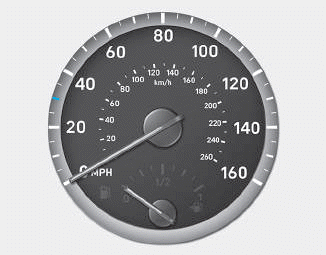
The speedometer indicates the speed of the vehicle and is calibrated in kilometers per hour (km/h) and/or miles per hour (MPH).
Tachometer
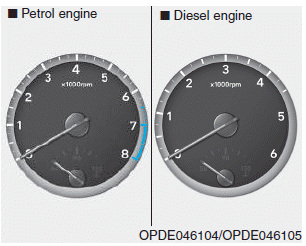
Copyright © 2025 www.hi30.net
